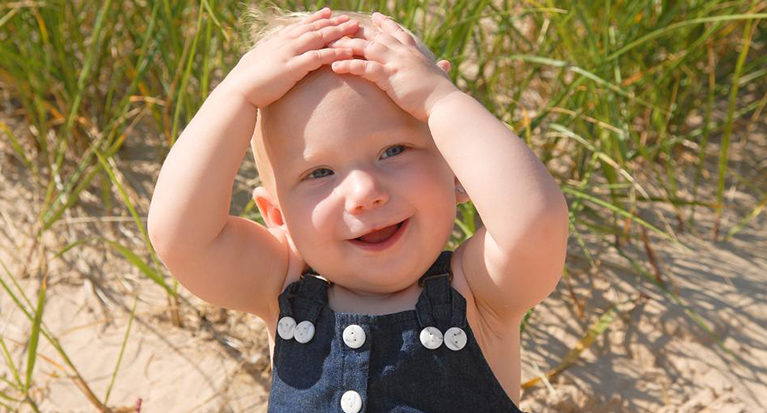Cold-hearted. Negative. No hope offered.
This is how Tarra Parks would describe her experience with medical professionals during the toughest moments of her daughter’s struggle. The lack of support was evident from the moment her daughter, Elaina, was diagnosed with spina bifida, hydrocephalus and Arnold Chiari II.
“I didn’t even know much about spina bifida, I only knew it wasn’t good because no one was smiling or offering any words that were near encouraging,” she said.
Tarra found that while health professionals couldn’t be counted on to provide emotional or spiritual support, hope was still able to be found. Her husband Will, her three other daughters, God, her friends and family all were there to help in some way. Ultimately, Tarra used her own strength and those close to her to face the challenges of her daughter’s health problems.
“We were careful not to let other people’s lack of hope affect ours,” she said. “We needed people building us up. Doctors are there because they are knowledgeable, but I didn’t lean on them.”
Elaina was first diagnosed in the womb at 20 weeks. Spina bifida is the incomplete development of the spine, where a part of the spinal cord may be exposed through an opening in the back. It leads to mild to severe nerve damage, depending on the type and location. It is associated with other conditions like hydrocephalus (improper draining of fluid in the brain) and Arnold Chiari II (malformation of the cerebellum, which helps control motion and balance).
Tarra met with her new doctor and a genetic counselor about the diagnosis, and they gave her a very bleak outlook. She said they never explicitly mentioned abortion, but they wanted her to know “all the options.”
“Even the thought of it never came to my mind before I met our genetic counselor,” she said. “I just knew I would be delivering my fourth daughter sometime in March, and knew she may have needs different than my others did.”
Abortion was never an option for Tarra, but she said many could be led to making a bad choice if they only receive negativity from their doctors. She said she read a “Dear Abby” article in her doctor’s office from a couple who aborted their child with spina bifida. Tarra was very unhappy with her treatment but was not allowed to switch doctors. Many mothers could be in similar circumstances. Tarra said the medical community has a lot of work to do in treating the patients and not just the illness.
“Something positive needs to come from the medical field. It doesn’t have to be such a grim experience. You can have hope,” she said. “That was the one thing my doctors didn’t give me: hope. Not at all.”
Mothers in similar circumstances need to take it upon themselves to find help, Tarra said. She said they need to focus on information specific to their child and avoid worst-case scenarios. According to Tarra, the book she received on spina bifida only had pictures of kids in wheelchairs, while many people who have spina bifida are able to walk.
“Don’t spend a lot time online, because it will freak you out,” she said. “Just find out what it is, and then ask doctors what is specific to your baby.”
Elaina was born on March 14, 2007. She lives with her parents and three sisters in Kentwood. Tarra credits her doctors with helping treat Elaina, but said that there can still be hope for people with unsupportive caregivers if they look for it themselves.
“Today I look at my bright blue eyed little girl, now approaching 16 months old, and very little of what they told us about our daughter is actually happening,” Tarra said. “I can’t imagine not having my daughter, and I want to share with the world what has happened in her life.”
There is hope and help for women and families facing an untimely pregnancy or difficult diagnosis. For a list of pregnancy support services, click here.
